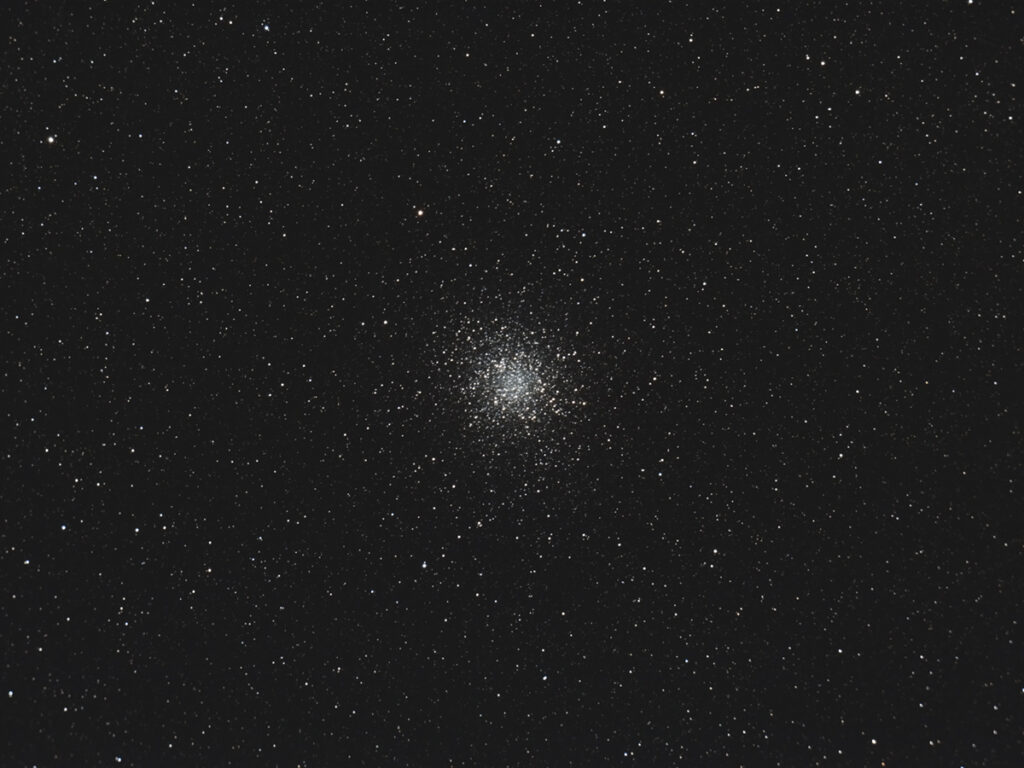
Telescope: Meade 10” LX850 ACF @ f/8, Orion Atlas EQ-G
Camera: Canon EOS Ra, GSO IR Blocking Filter
Guide scope: Orion 50mm, ASI120MM Mini, PHD2
Exposure: 46x30sec, ISO 800, saved as Raw
Darks: Internal (Long Exposure Noise Reduction On)
Flats: 32x1sec, tee shirt flats taken at dusk
Average Light Pollution: Red zone, Bortle 8, poor transparency, haze
Lensed Sky Quality Meter: 18.1
Stacking: Mean with a 1-sigma clip.
White Balance: Nebulosity Automatic
Software: Backyard EOS, Deep Sky Stacker, Nebulosity, Photoshop
M22 is one of several gorgeous globular clusters in and near Sagittarius and is one of the gems of the summer sky in the northern hemisphere. With an estimated distance of 10,600 light years it is one of the closer globulars in our galaxy. In many ways M22 should outshine M13, but it can get a bit lost among the stars near the Sagittarius star clouds and its light is dimmed by dust along the galactic plane. Still, it is large, bright, and easily resolves into this beautiful glow of stardust even in a modest telescope. In a large telescope it blossoms into a glorious sight.
M22 is currently well placed in the southern sky during the early evening.
Recent Comments